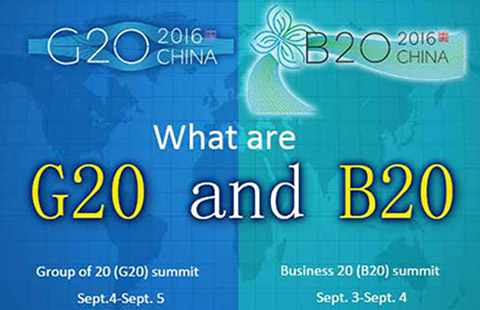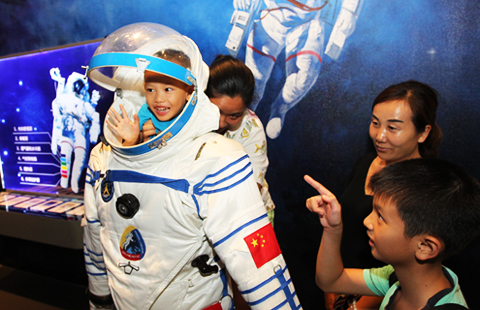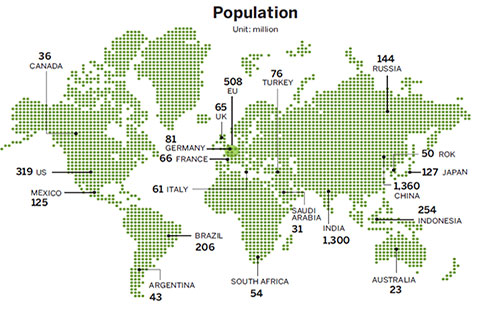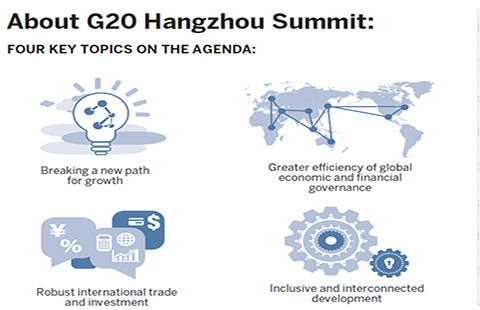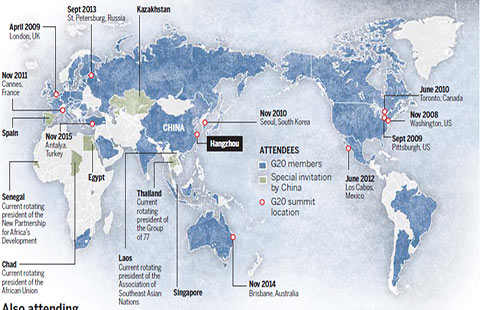Egypt's Sisi hails China's creative role in enriching G20 summit
(Xinhua) Updated: 2016-09-01 11:26
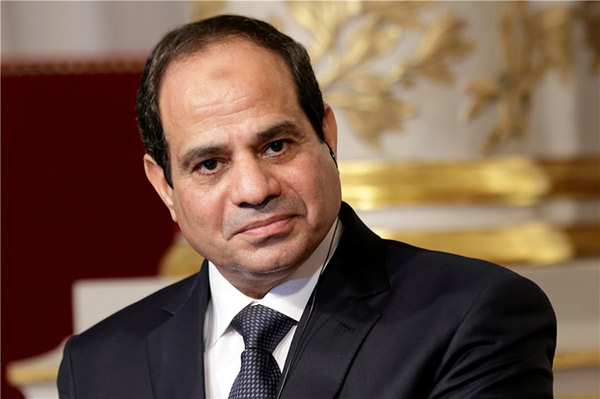 |
|
Egyptian President Abdel Fattah al-Sisi delivers a statement following a meeting with French President Francois Hollande at the Elysee Palace in Paris, France November 26, 2014. [Photo/Agencies] |
"I am confident that the results of the upcoming summit will meet the aspirations of our peoples and the international community as a whole," President Sisi said in an interview Wednesday with Xinhua and other Chinese media based in Cairo.
Sisi's remarks came ahead of his upcoming visit to China's eastern city of Hangzhou to attend the G20 summit scheduled for Sept. 4-5 as a guest of honor at the invitation of his Chinese counterpart Xi Jinping.
The Egyptian president hailed China's "great and creative efforts" in leading the G20 this year and preparing a bunch of key initiatives and work plans in various fields to be highlighted during the summit.
Held under the theme of "Toward an Innovative, Invigorated, Interconnected and Inclusive World Economy," this year's summit is expected to redraw the map of world economy that has been facing decline over the past few years through balanced, inclusive economic development-based policies to benefit big and small economies alike.
Sisi said that the theme "summarizes Egypt's vision on the methods of world economic administration."
"The theme honestly reflects what the world economy needs today, as it stresses building a world economy where all efforts combine. Developing countries need the economic expertise and finance capabilities of developed countries, which in turn need promising markets in developing countries to absorb their products," said the Egyptian leader.
It is the first time for Egypt, which is not a G20 member, to be represented in such a massive international economic event, known by experts as the board of the world's economy, and the Arab, African developing country is expected to seize the opportunity to present its economic map and investment environment to attract foreign investors.
Sisi hoped Egypt's participation in the G20 summit will enhance the country's practical cooperation with members of the group, stressing that Egypt seeks close cooperation with China to achieve the goals of the summit.
Describing Egypt's ties with China as "strong and extended," Sisi noted that the historical ties between the two countries provide promising chances for their further cooperation and coordination.
Sisi has visited China twice since he came to office in mid-2014 and was invited to the G20 summit during Chinese President Xi Jinping's first state visit to Egypt in January.
The two leaders agreed to elevate the bilateral relationship to a comprehensive strategic partnership in December 2014.
Sisi said that his invitation to the summit embodies the depth of friendship and partnership between the two countries.
"Egyptian-Chinese relations grow stronger day after day and extend to include various fields of cooperation at all levels, given the technological and finance capabilities of China and the promising investment and business opportunities provided by Egypt," the Egyptian leader said.
He also emphasized that Egypt's unique strategic location can make it "China's portal to Africa."
"Egypt welcomes Chinese investments that can export their products to the African states with which Egypt has free trade agreements," Sisi said, noting Egypt hosted in June 2015 the signing of a tripartite free trade agreement between the East African Community (EAC), the Southern African Development Community (SADC) and the Common Market of Eastern and Southern Africa (COMESA).
Being the portal for the Arab world, Africa and also Europe through the Mediterranean Sea, Sisi believes that Egypt can play a key role in the Belt and Road Initiative proposed by Xi in 2013.
"Egypt supports the Chinese president's initiative to revive the Silk Road, and is keen on supporting such positive initiatives that seek to achieve cooperation and interests of peoples, bearing in mind that Egypt can be a main focal point for the implementation of this initiative through the Suez Canal projects," the Egyptian leader pointed out.
"Egypt is interested in learning from China's pioneering experience in different fields," the Egyptian president continued, citing China's successful experiences in the fields of administrative development, e-government, scientific research, communication and information technology, agriculture, technical training and rehabilitation and small medium enterprises.
Over the past few years, which saw the ouster of two heads of state in 2011 and 2013, security issues caused Egypt economic recession featuring a growing budget deficit, declining foreign currency reserves, ailing tourism and fleeing foreign investments.
The challenges led the most populous Arab country to seek a $12 billion loan recently from the International Monetary Fund (IMF) to implement a tough, three-year economic reform program.
During his visit to Cairo, Chinese President Xi Jinping made an important speech at the Arab League headquarters where he highlighted "development" as the key to resolve most Middle East problems including growing terrorism and chaos.
"Amid all challenges rises the role of the Group of 20, especially China. The group is qualified to play an active role at the international level in different international issues, topped by fighting terrorism," the Egyptian president hoped, stating that the G20 states represent two-thirds of the world population, 85 percent of the world GDP and more than 75 percent of the world volume of trade.
Sisi emphasized that maintaining security and stability requires providing a suitable environment for economic growth, creating job opportunities and settling growing disputes," which are all conditions used by terrorist groups to recruit new elements."
He also stressed the necessity for uprooting the resources that provide terror groups with funds and arms, calling for punitive measures against the countries that assist them.
"Egypt is keen to enhance its cooperation with China in various fields including fighting terrorism, which Egypt believes has to be done through a comprehensive strategy that is not restricted to military and security cooperation but is extended to involve economic and social dimensions," said the Egyptian president.
- What makes G20 unique?
- Argentine ambassador calls China 'great partner'
- No Normandy format meeting over Ukraine planned at G20 summit: Kremlin
- More inclusive development for better globalized world
- What are G20 and B20?
- G20 to play vital role in stabilizing monetary policies
- How did G20 cope with global financial crisis?
- NZ Manuka honey producer signs China distribution agreement

